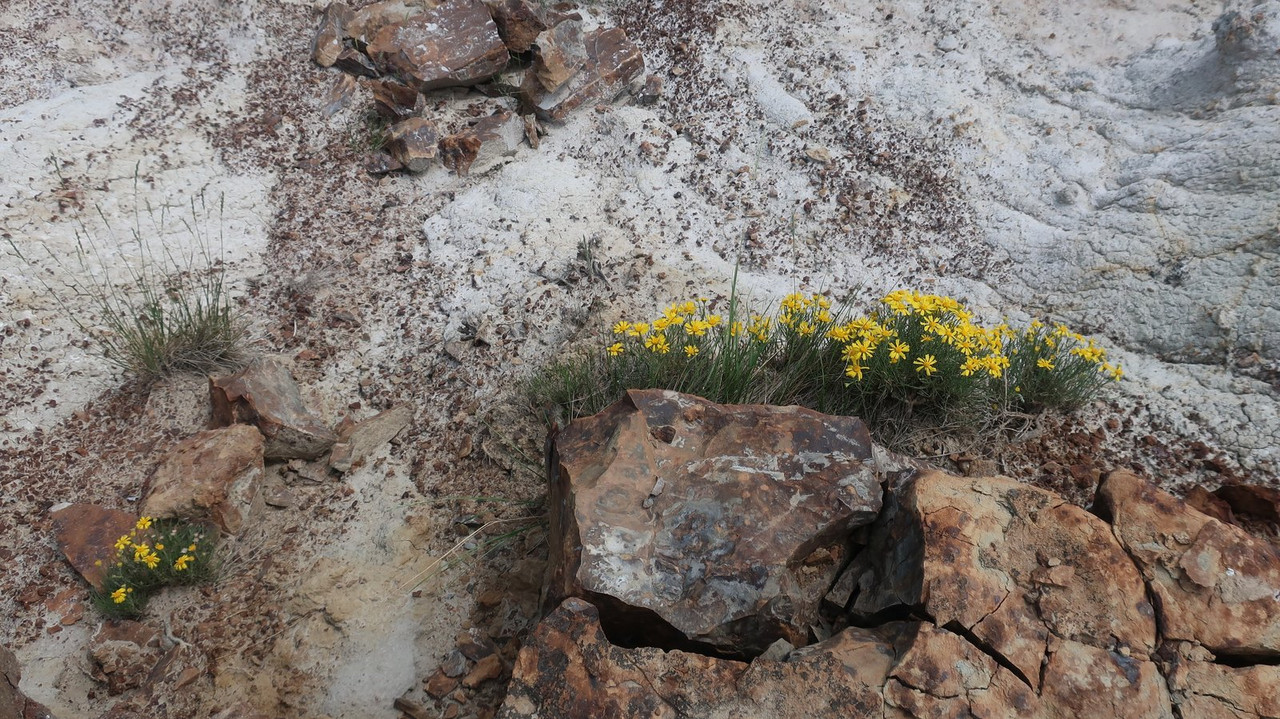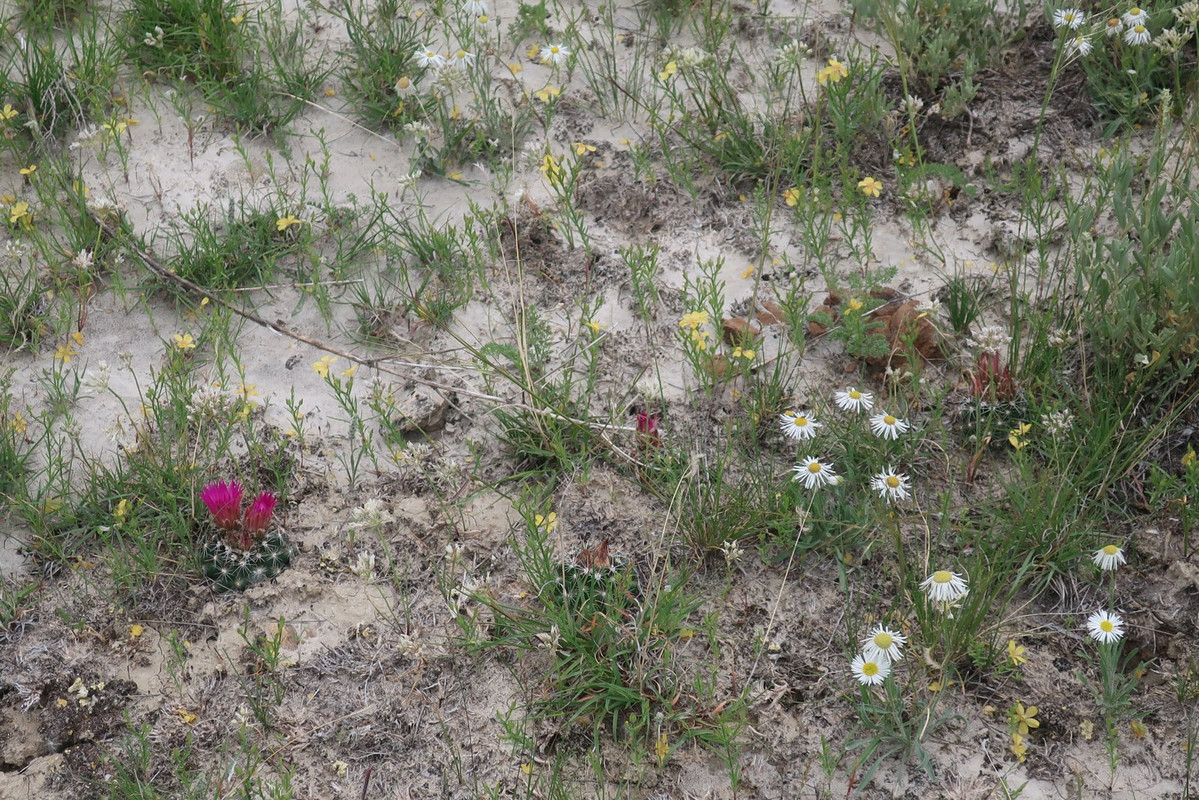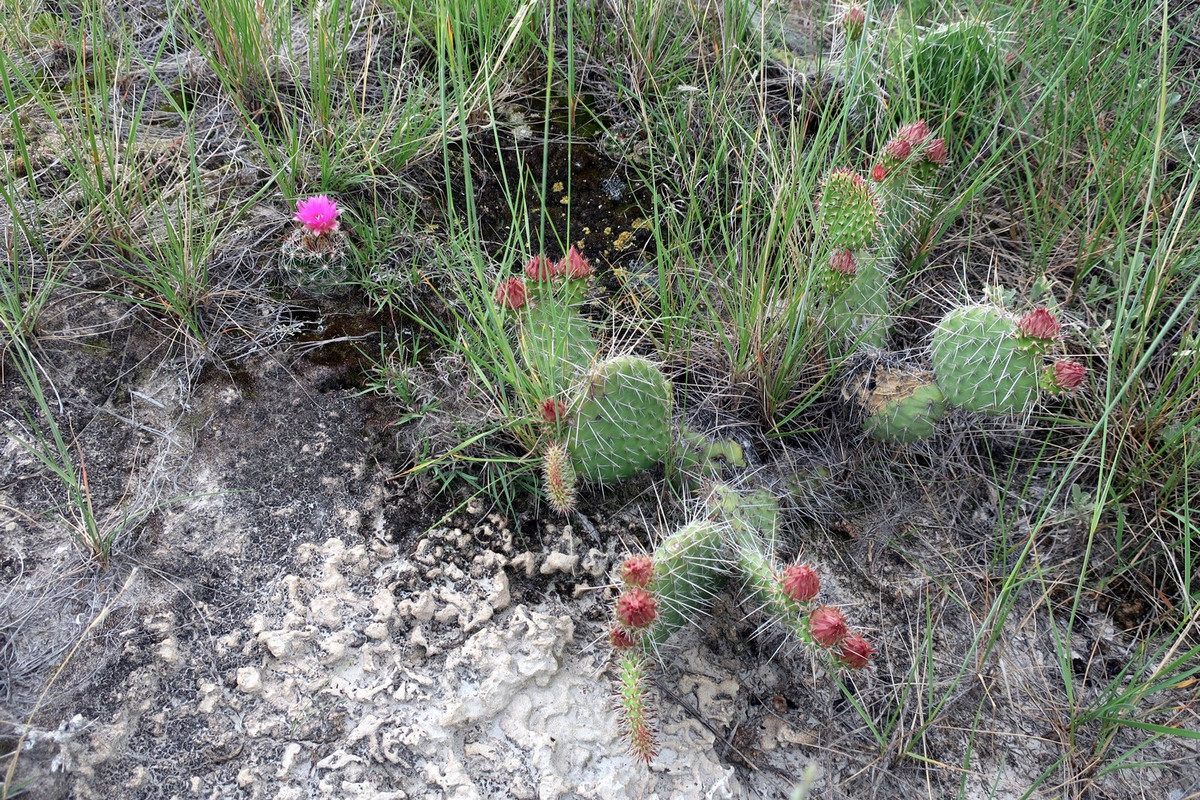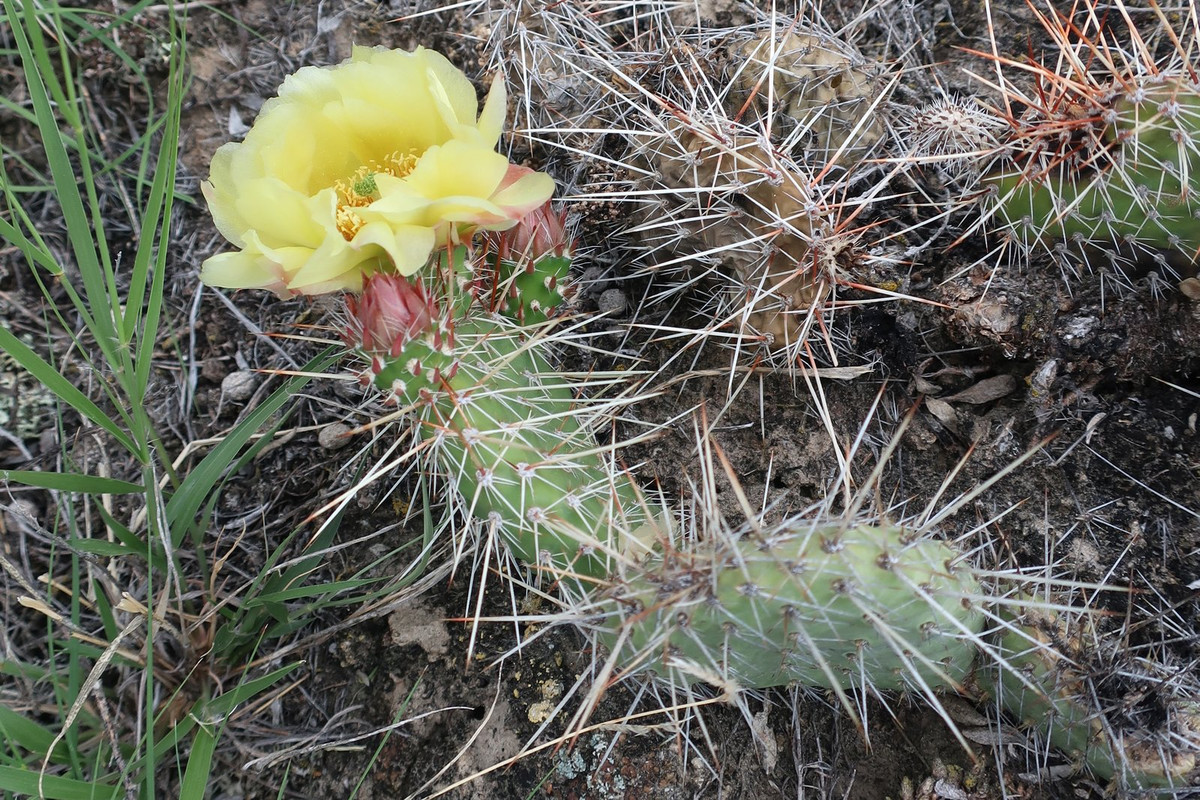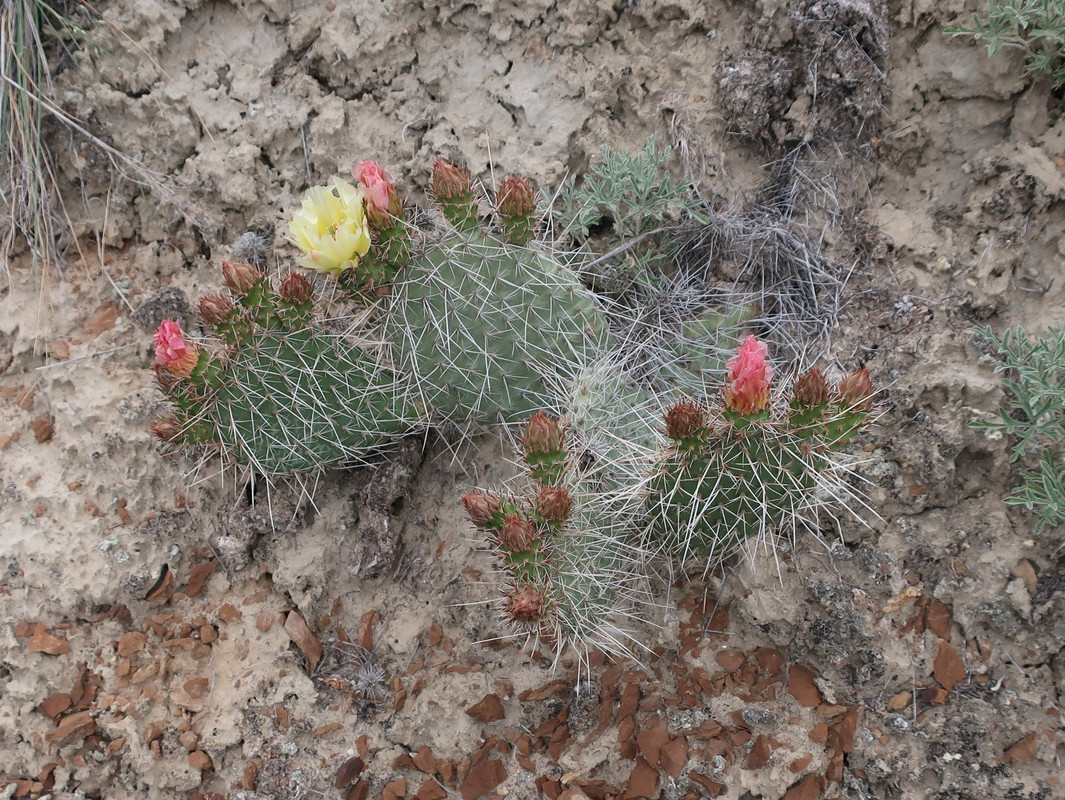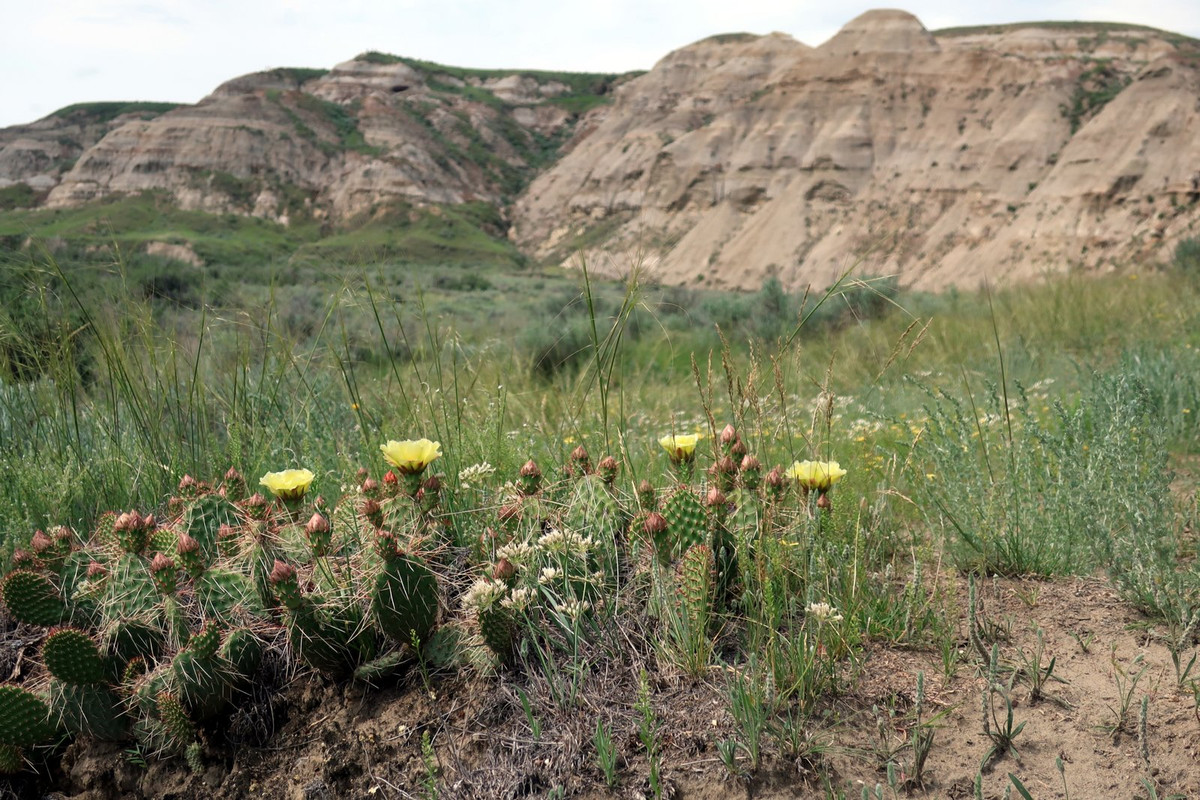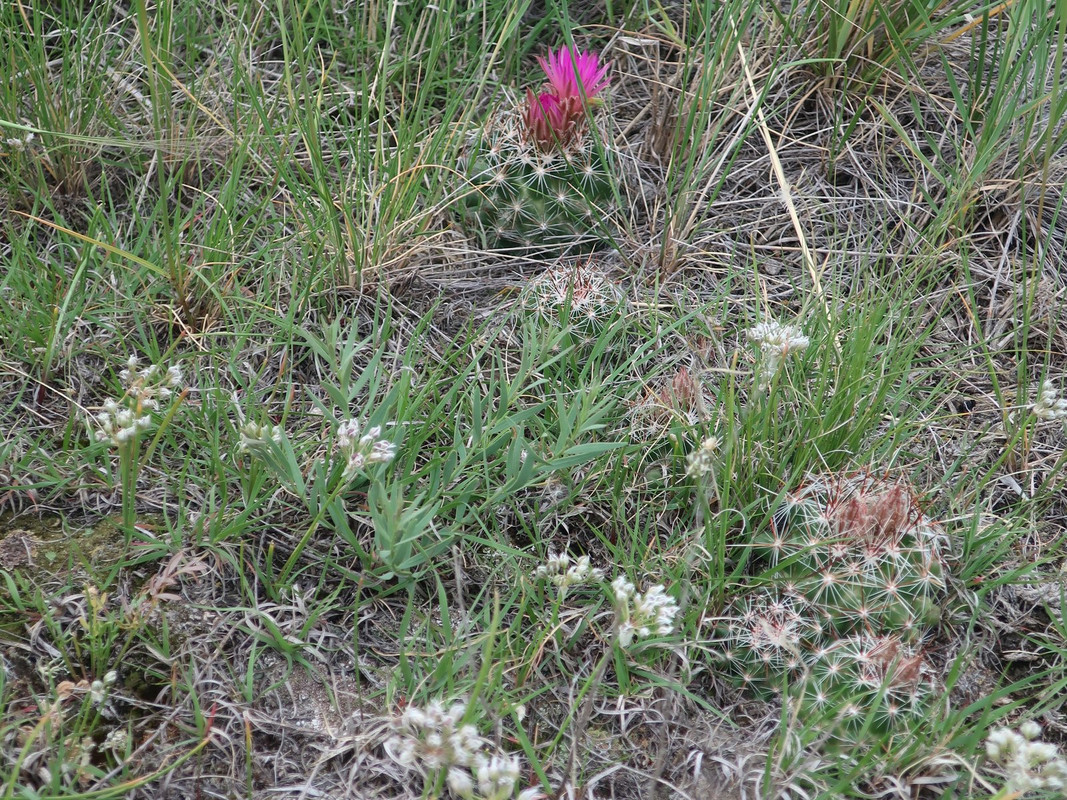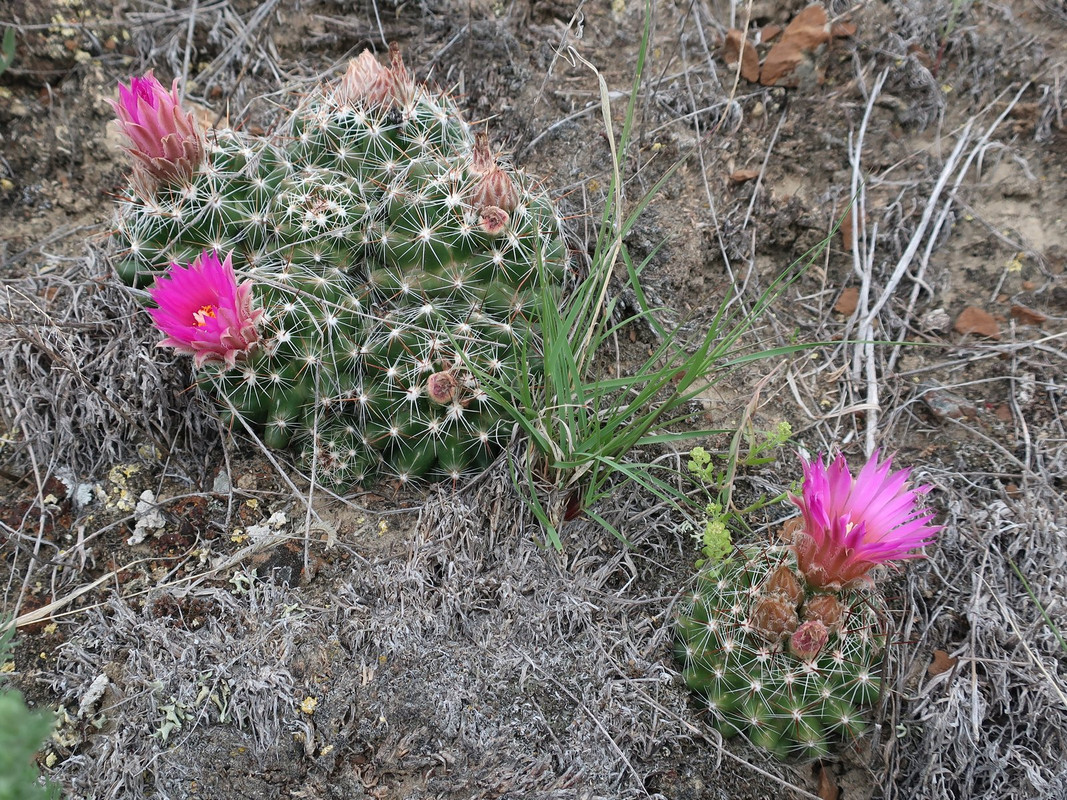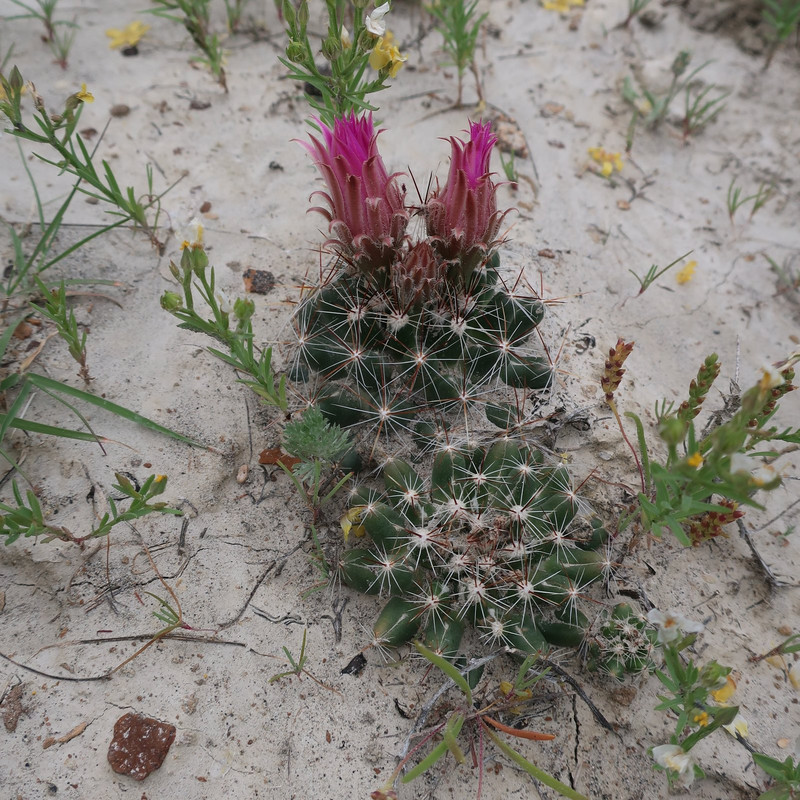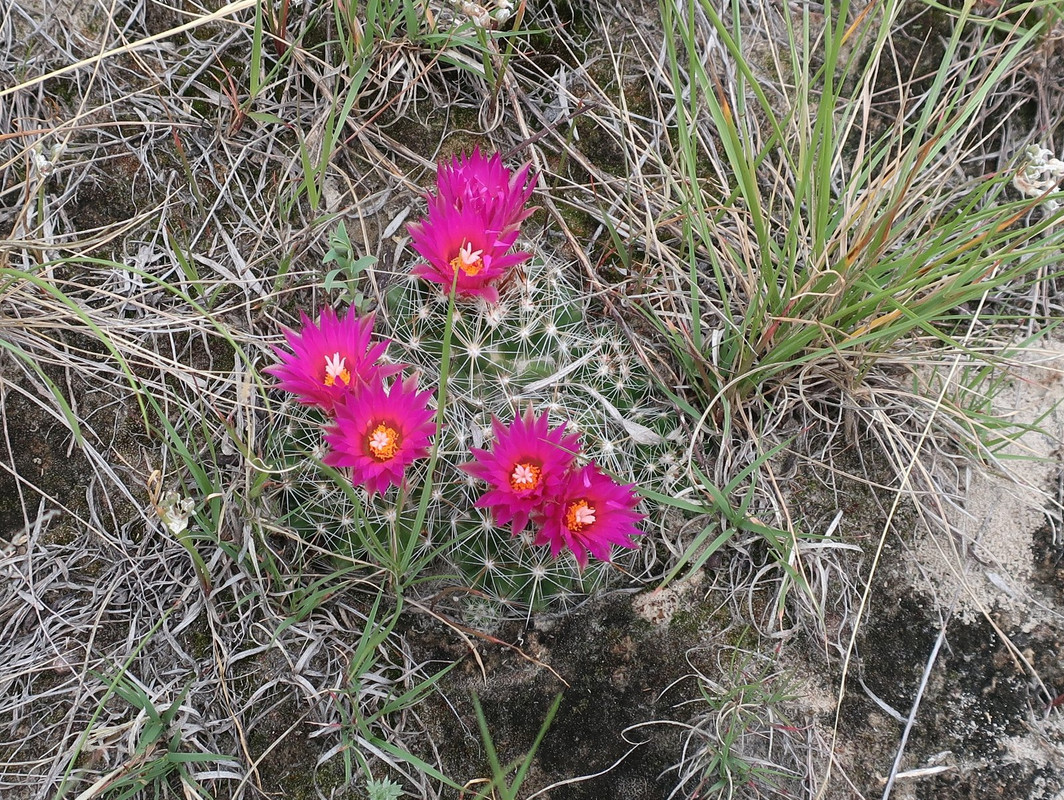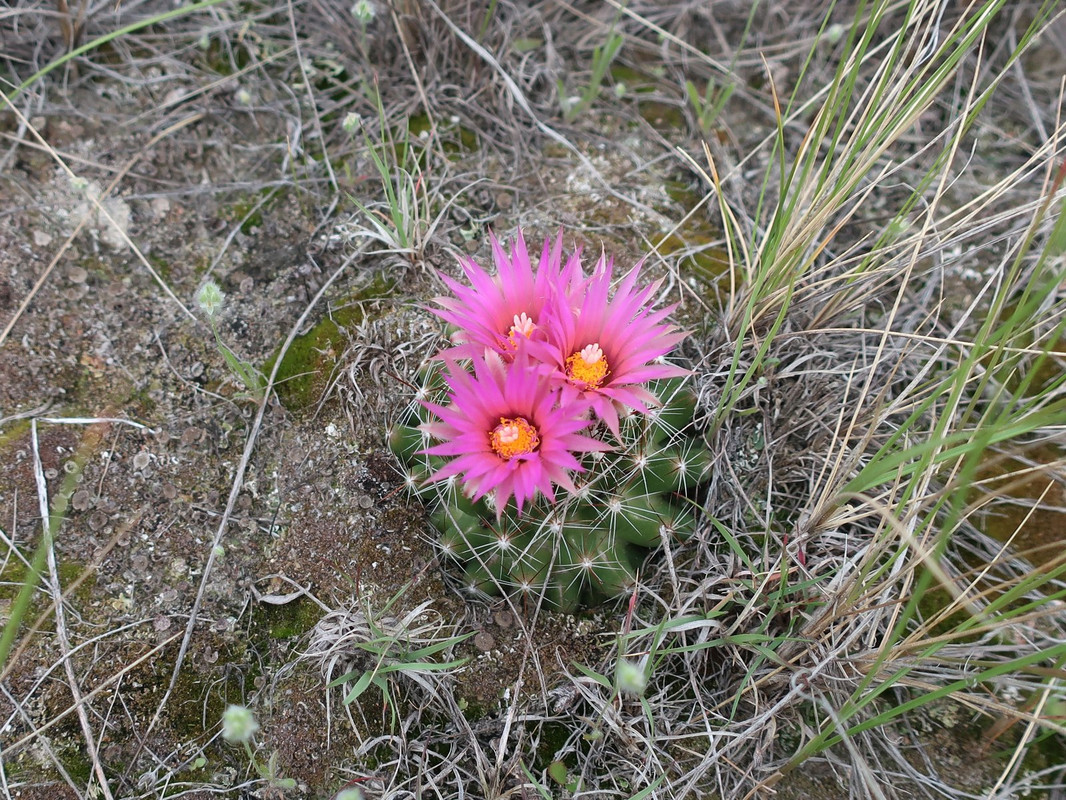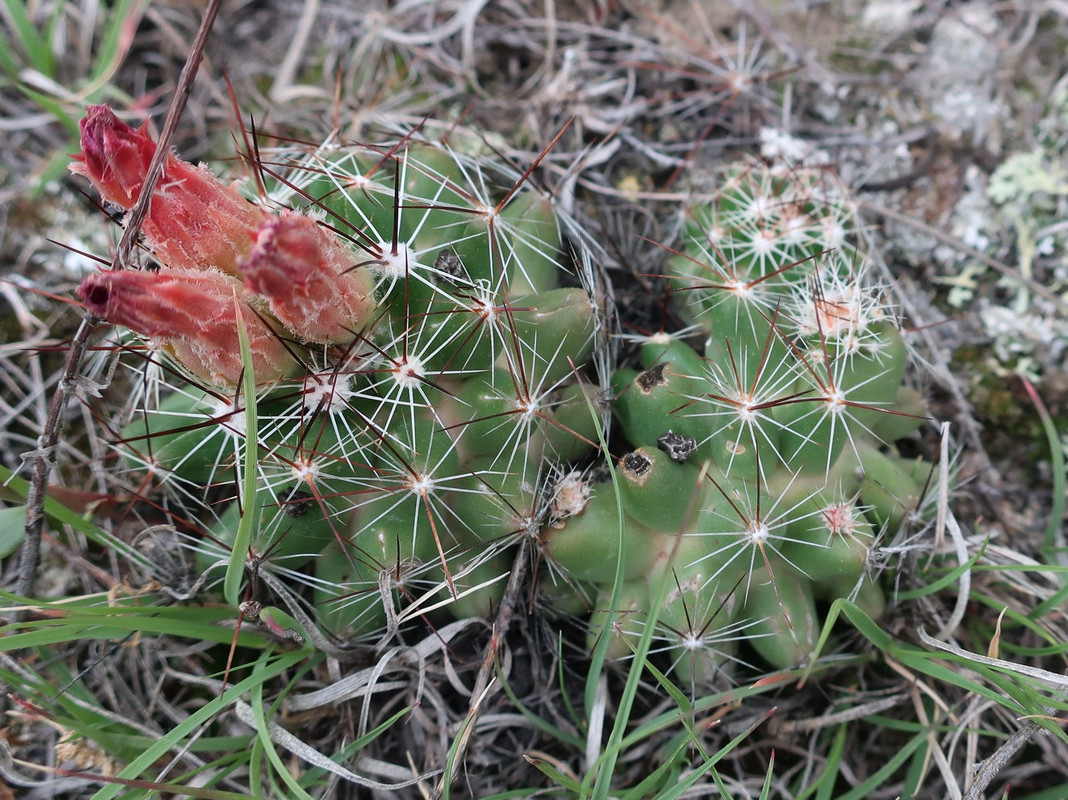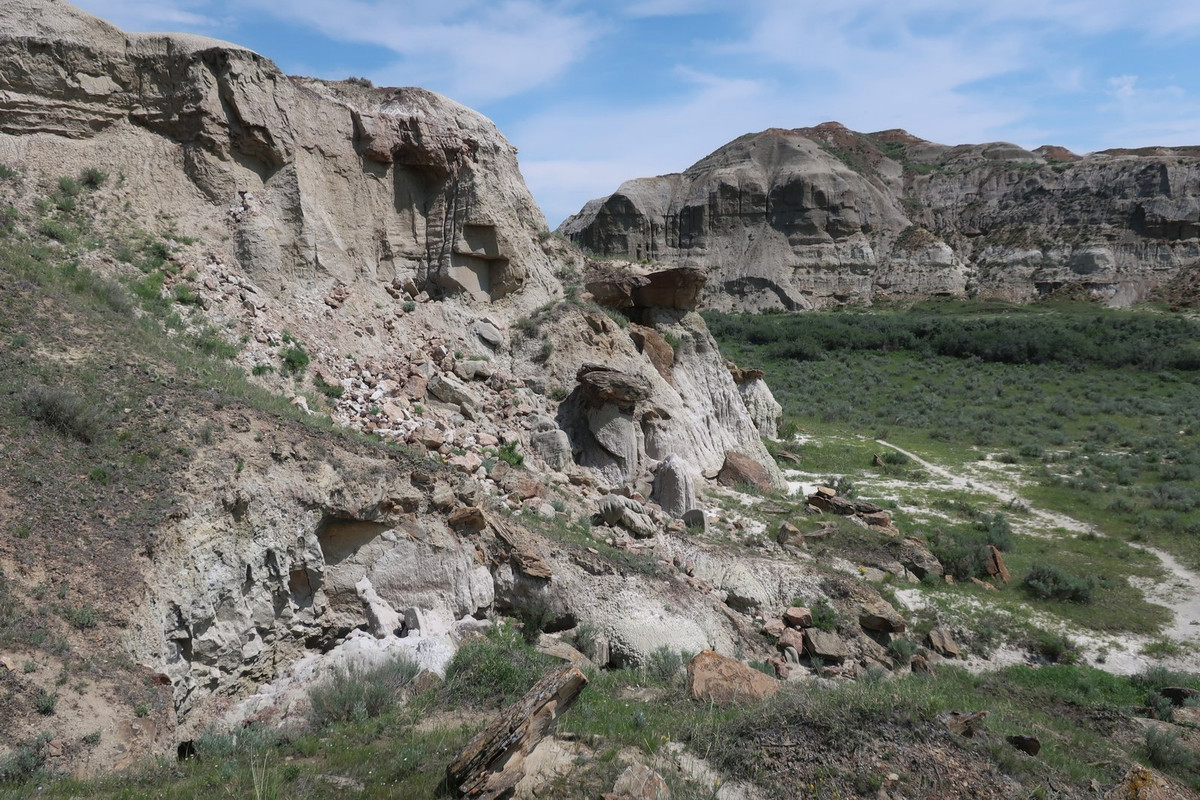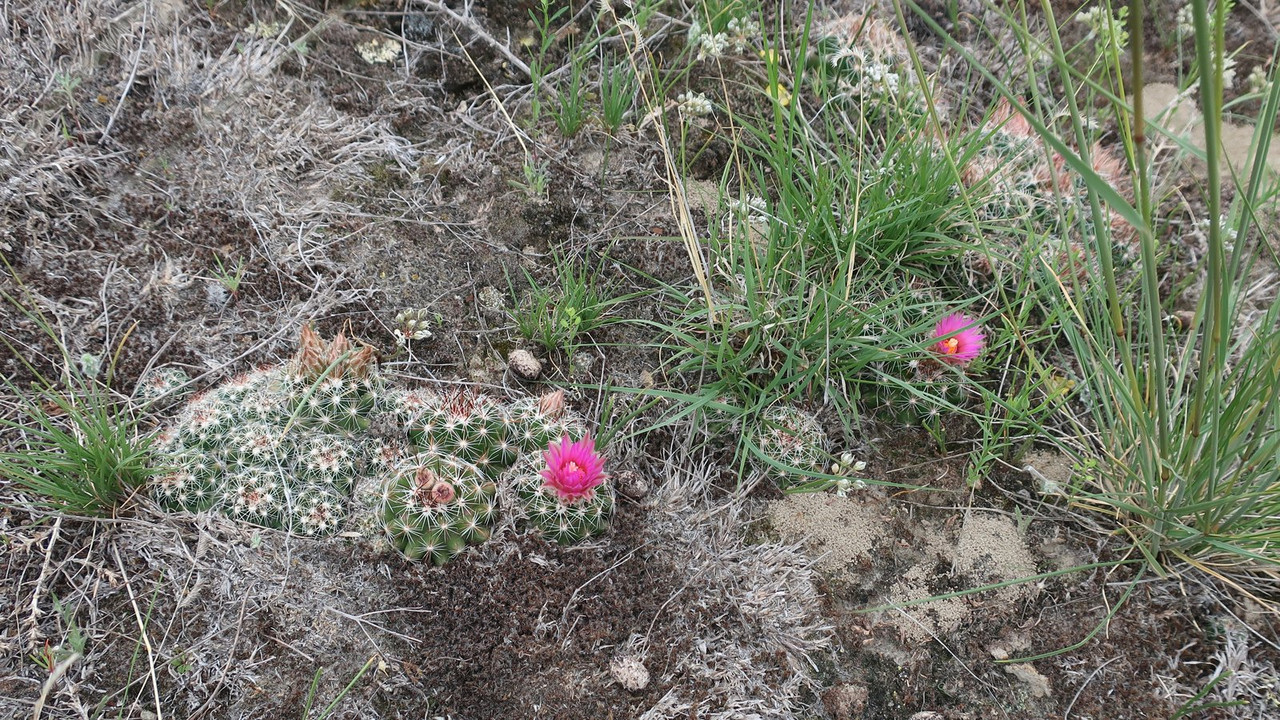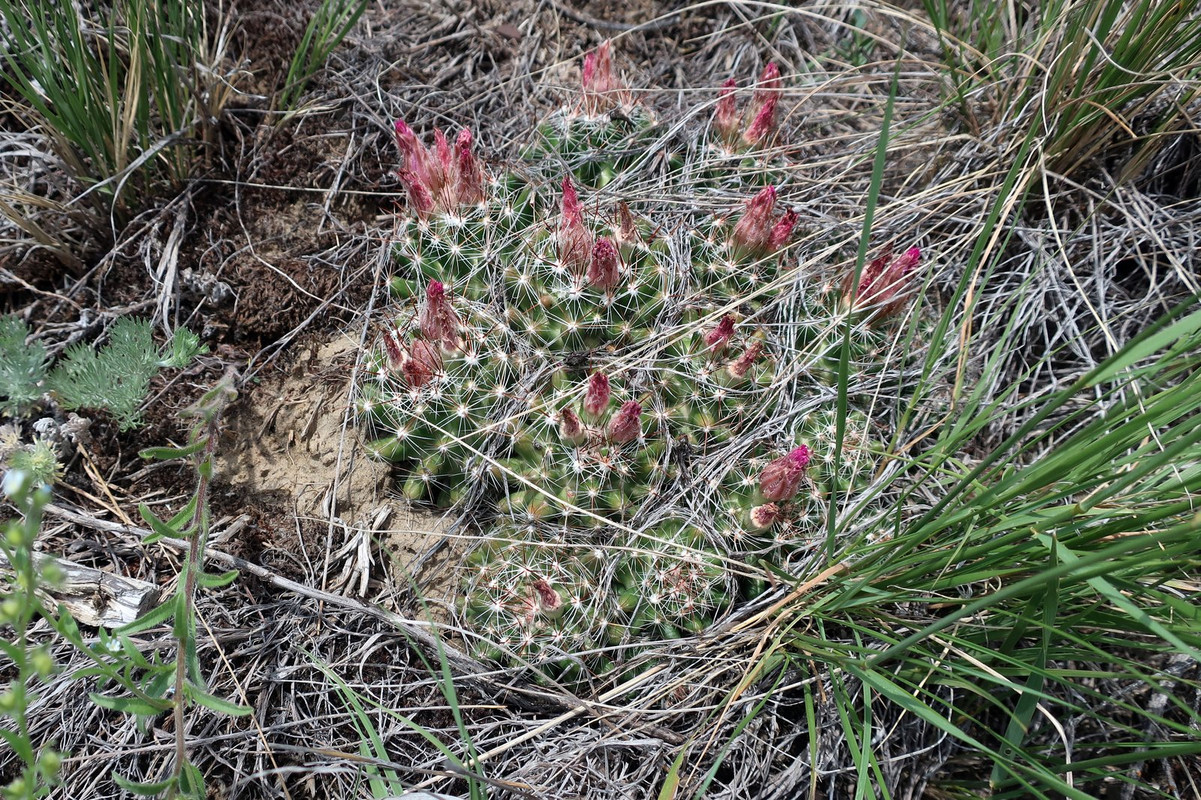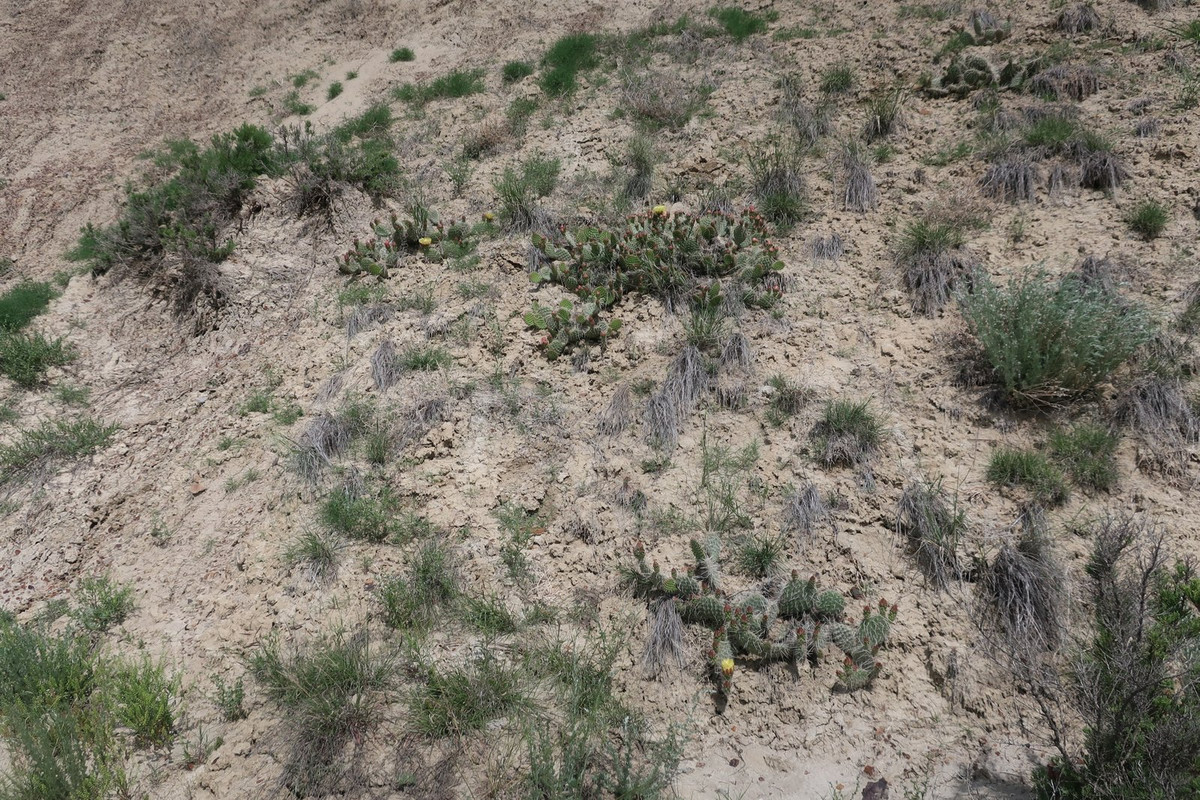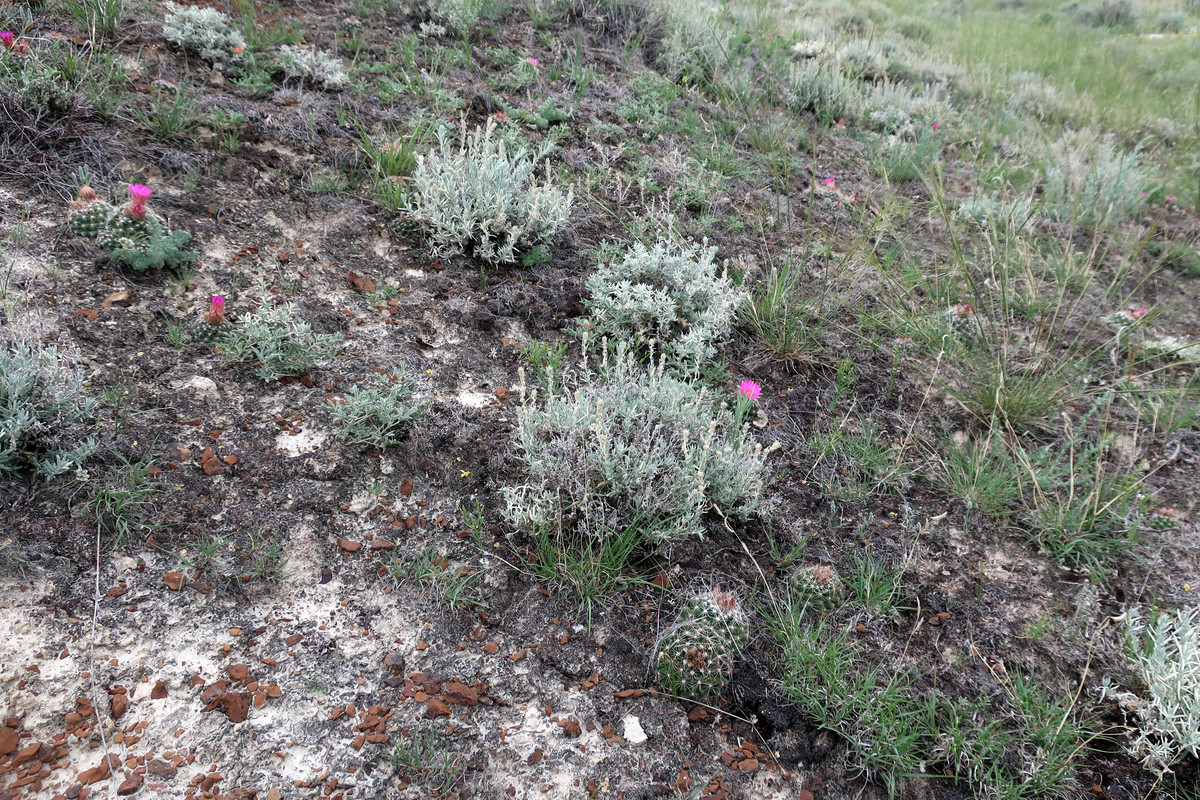Page 1 of 2
Prairie Blooms 2020 - 22
Posted: Thu Jun 18, 2020 12:44 am
by 7george
Re: Prairie Blooms 2020
Posted: Thu Jun 18, 2020 2:46 am
by Steve-0
Beautiful images ! Thanks for sharing them.
At a guess that area does not practice 'Open Range' cattle grazing.
Most of Utah public lands aka BLM land does.
My recent visits to some southern desert areas in my state revealed to me an epiphany....which is....Every square foot of all BLM land has been trampled by cattle ...and the rest is shat upon by the bovines.
Only established junipers stand above their crushing hooves. Boulders are the only safe havens for cacti to survive next to.
Exception would be Opuntia polyacantha and while hiking and taking pics I thought that because they branch and spread their pads do they escape crushing death and annihilation by roaming beef cattle's dinner plate sized hooves at all.
Very few other cactus species live long unless in the shadow of a Boulder or on the steepest hillsides.
Everything else is consumed day in day out, year after year, decades into centuries.
Sorry for the rant...it irks me to see past the trampled earth through to what we could have had in our public landscape.
And our Opuntia. poly. and Escobaria v....are just finishing the flower season. The Sclerocatus parviflorii bloomed in mid to late May. The Echinocereus Claret Cups bloomed along side them.
Re: Prairie Blooms 2020
Posted: Thu Jun 18, 2020 4:34 am
by bartab
Beautiful country! Thank you for posting.
Re: Prairie Blooms 2020
Posted: Thu Jun 18, 2020 4:19 pm
by tumamoc
Awesome! You don't see much habitat pix from that far north. Thanks for sharing it.
Re: Prairie Blooms 2020
Posted: Fri Jun 19, 2020 3:06 am
by hegar
Hello 7george,
I could have sworn, that I did comment on your post yesterday. However, when I looked at it today, there was nothing I posted visible. I either sent my comment to someone else's thread or forgot to hit the submit button. I was dreadfully tired and actually dozed off while sitting at the computer.
I too enjoy looking at the flora so far away from what I consider to be "cactus country".
I already stated this last year, but shall do so again: I really do dig the Escobaria vivipara plants that grow near where you reside. The blossoms are of more color variations, ranging from very deep pink (almost purple) to light pink. Our E. vivipara generally does have a light pink color. Its blossoms are also different, with the petals being thinner. The flowers also look a bit unkempt, not as perfectly arranged as they are on the plants you encounter.
I hope, that you can find some additional cactus species and continue to show us what cacti grow in southeastern Alberta, Canada.
Harald
Re: Prairie Blooms 2020
Posted: Sat Jun 20, 2020 1:09 am
by 7george
Re: Prairie Blooms 2020
Posted: Mon Jun 29, 2020 7:03 am
by Shane
Very nice pictures. Thanks for sharing!
Re: Prairie Blooms 2020
Posted: Mon Jun 29, 2020 2:33 pm
by mikethecactusguy
secret spots are nice...
Re: Prairie Blooms 2020
Posted: Wed Jul 01, 2020 9:19 am
by From0to10in2weeks
As a cacti newbie I am astonished that cacti can survive the Canadian winter. Given the recommendation to keep most cacti around 5 - 10 C in the winter, how is that possible? Thanks.
Re: Prairie Blooms 2020
Posted: Wed Jul 01, 2020 9:24 am
by Aiko
Actuallty, most cacti can easily take freezing temperatures. The only thing is they should be in dry soil.
I guess this part of Canada might be cold but will probably be relatively dry. Or at least doesn't receive rain every few days. When it rains, it probably pours, followed by a longer spell of dryness?
And when there is snow, the snow will probably sublimate instead of melt (as it will do up here), so it might not wet up the soil as much And probably once it snows, the snow will stay for a few months, in the mean time snow covered plants are insulated and will be protected from the severe cold thanks to the layer of snow.
But I am just guessing here. I don't know much about Canada... All I know is up here it gets less cold than in Canada, but I am sure due to regular rain cacti will hardly or not at all survive outdoors unprotected through winter. I need to keep mine in the greenhouse.
Re: Prairie Blooms 2020
Posted: Wed Jul 01, 2020 10:11 am
by From0to10in2weeks
Aiko wrote: ↑Wed Jul 01, 2020 9:24 am
Actuallty, most cacti can easily take freezing temperatures. The only thing is they should be in dry soil.
I guess this part of Canada might be cold but will probably be relatively dry. Or at least doesn't receive rain every few days. When it rains, it probably pours, followed by a longer spell of dryness?
And when there is snow, the snow will probably sublimate instead of melt (as it will do up here), so it might not wet up the soil as much And probably once it snows, the snow will stay for a few months, in the mean time snow covered plants are insulated and will be protected from the severe cold thanks to the layer of snow.
But I am just guessing here. I don't know much about Canada... All I know is up here it gets less cold than in Canada, but I am sure due to regular rain cacti will hardly or not at all survive outdoors unprotected through winter. I need to keep mine in the greenhouse.
That makes a lot of sense. Thanks!
Re: Prairie Blooms 2020
Posted: Wed Jul 01, 2020 3:48 pm
by Steve-0
Here's the Escobaria vivipara range map. The Opuntia polyacantha has an almost identical range.
Re: Prairie Blooms 2020
Posted: Wed Jul 01, 2020 8:19 pm
by Steve-0
Really nice scenery. My terrain is high mountain desert at 4500' ASL...so about 1,000 feet higher...more like Banff elevation but much drier.
The southern desert I've visited a few times this spring is at 7K feet ASL. There are two Opuntia species present fragili and polyacantha. Two Sclerocactus species - parviflorus and wrightiae of which I've only seen parviflorus of the fishhook cacti. Which leaves Escobaria vivipara and Echinocereus triglochidiatus. There may be others but they are unknown to me.
After a few visits the pattern became readily apparent as to the occurrences of the various species. Cows! Lots of Cows! Stomping flat and squashing dead any and all cactus of globular or cylindrical shape. I kept noticing that while there are flowering and seed bearing specimen of cacti abounding the area...none were of large sizes. The Opuntia get flattened too and busted up but the pads already being flat seems to take little damage...plus they grow faster than the others.
Only around lava boulders, steep inclines or off the "buffet line" of grasses did the more mature specimens exist. Only there were the multi stemmed cactus or clusters of Sclerocactus. And these were few and far between.
Which brings me back around to how amazing your protected provincial park is and how I imagine how our public lands would look without the bovine bulldozers devastating thousands of acres of flora and fauna. But at least we are privileged to enjoy the 66% of our state as public lands with much to see and do. It's why I would don't need to go south of the border to riskier locale to see as lovely scenery as we already have in our back yards.
Re: Prairie Blooms 2020
Posted: Fri Dec 18, 2020 4:26 am
by 7george
Aiko wrote: ↑Wed Jul 01, 2020 9:24 am
Actuallty, most cacti can easily take freezing temperatures. The only thing is they should be in dry soil.
I guess this part of Canada might be cold but will probably be relatively dry. Or at least doesn't receive rain every few days. When it rains, it probably pours, followed by a longer spell of dryness?
And when there is snow, the snow will probably sublimate instead of melt (as it will do up here), so it might not wet up the soil as much And probably once it snows, the snow will stay for a few months, in the mean time snow covered plants are insulated and will be protected from the severe cold thanks to the layer of snow.
But I am just guessing here. I don't know much about Canada... All I know is up here it gets less cold than in Canada, but I am sure due to regular rain cacti will hardly or not at all survive outdoors unprotected through winter. I need to keep mine in the greenhouse.
You are generally right about our climate, Aiko. We have (almost) no rains during winters here - we get only some snow that slowly melts and evaporates during next warm spell and Chinook winds that are also dry. Also our local cacti species are well adapted to those conditions and once dehydrated never intake water till next spring that comes somewhere in May. Local E. vivipara and Opuntia are not water-sensitive unless their body is damaged by insects or other pests. I had a photo of one of my outdoor plants embedded in a chunk of ice (frozen pool), if I find it will post it here.

- 140125_002.jpg (133.55 KiB) Viewed 6720 times

- The same plant blooming summer time.
- IMG_9857x.JPG (136.4 KiB) Viewed 6719 times
From0to10in2weeks wrote: ↑Wed Jul 01, 2020 9:19 am
As a cacti newbie I am astonished that cacti can survive the Canadian winter. Given the recommendation to keep most cacti around 5 - 10 C in the winter, how is that possible? Thanks.
Even for most cacti the above recommendations are not very appropriate because daily contrasts in average habitat (like Mexico) reach 15 - 20 C, so temperature in that winter usually ranges between 5 & 18 or 10 - 22 and so on. Some get freezing or prolong subzero temps on a daily base and tropical cacti will be happy with minimums of about 15 - 18 C. So having a diverse collection of cacti originating from all Americas we often try to fit it into some average but usually just "what possible at home or GH" conditions and this not always works the best way.
Re: Prairie Blooms 2020
Posted: Mon Dec 28, 2020 3:56 pm
by Mrs.Green
Thank you for sharing ! Great to see ‘wild’ cacti and lovely pics!
